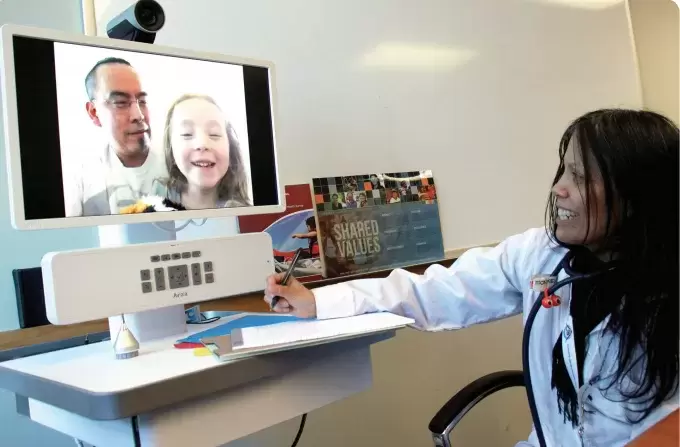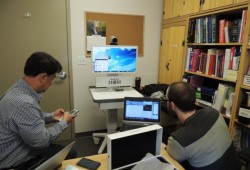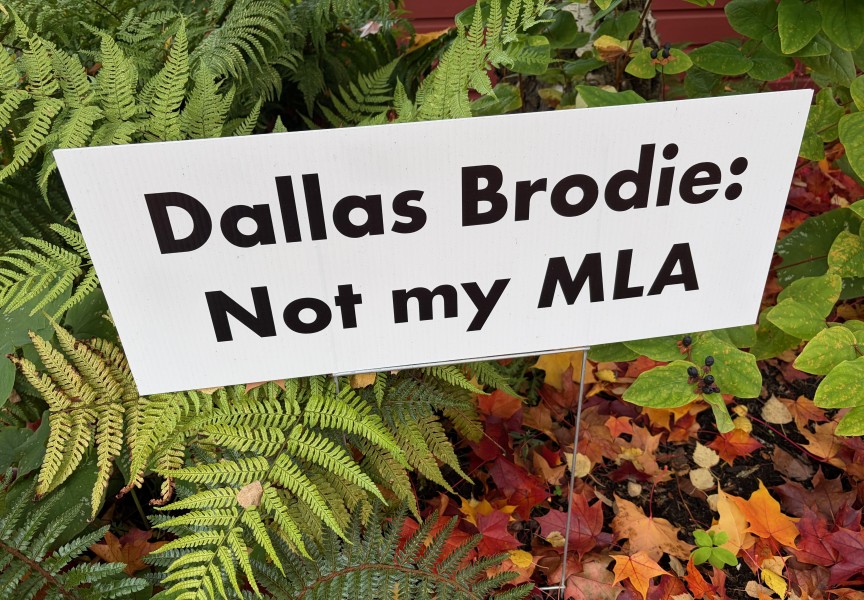A telehealth program newly available in Nuu-chah-nulth communities may prove invaluable during the COVID-19 pandemic.
First Nations Health Authority has developed the First Nations Virtual Doctor of the Day program over the last seven years with the primary aim of providing medical advice to residents in remote areas of the province.
With many people self-isolating or quarantining to prevent spread of the virus and only the most essential visits allowed to Island Health facilities, video conferencing technology that enables remote consultation could be indispensable to rural and urban residents alike.
“We’re almost in equal circumstances,” said Nuu-chah-nulth Tribal Council President Judith Sayers, who has been self-isolating at home since NTC offices were closed March 20.
Telehealth is the delivery of health-care service through live, interactive videoconferencing.
Sayers said FNHA has been working on the program, which has been gradually rolled out in B.C. communities since 2015.
“Getting advice over a computer or a phone is not ideal, but when you don’t have anything else? I think it’s very important,” Sayers said. “In the new normal, we have to try to be innovative.”
Megan Hunt, FNHA director of primary care, outlined the program to NTC directors and leadership last week.
“As you all know, the COVID-19 situation has meant an interruption to many health services operations, meaning community members may not be able to receive or deliver the primary health care that is needed,” Hunt wrote. “The goal of the First Nations Virtual Doctor of the Day program is to provide virtual primary health care support to First Nations citizens and communities, as well as health care providers.”
Clients can book an appointment by calling 1-855-344-3800 any day of the week, 8:30 a.m.-4:30 p.m.
Virtual Doctor is not meant to replace a client’s existing pathway to a family doctor or community nurse practitioner, Hunt stressed.
“We strongly encourage people who do have an existing relationship with a doctor or nurse practitioner to contact their provider first,” Hunt said. “This practice will help ensure those patients without a health care provider can have better access to the First Nations Doctor of the Day program.”
Even in larger coastal communities, isolation from physician services is an everyday reality. Anyone in Ahousaht in need of a doctor takes a water taxi to Tofino “and hopefully the weather is good,” Sayers said. If it’s an emergency requiring Medivac services, they have to hope the weather allows a helicopter flight. If someone in Nuchalaht needs to visit a doctor, it means a two- to three-hour drive to Campbell River.
“I think a lot of it is wishful thinking with doctors in a community,” Sayers said. “Medical service is definitely limited.”
Health care during the COVID-19 pandemic has had to adapt as the novel coronavirus spread, knowledge grew of its characteristics and responses evolved.
On March 20, Island Health announced it would allow only essential visits to its facilities, specifically limiting it to patients who are critically ill, patients receiving end-of-life care or frail patients who need an escort or family member for safety. Even those who fit the categories must pass screening criteria. They cannot have travelled outside of Canada in the last 14 days and must not have a cough, runny nose, fever, sore throat or shortness of breath.
Containment of the highly communicable virus is the goal. It’s equally critical that it not be spread to health care providers.
“They don’t want people turning up at hospital emergency rooms wondering about symptoms and risking exposure of others to the virus,” Sayers said.
Telehealth appointments are generally held at local health centres, although that may change due to COVID-19 precautions. Virtual Doctor uses a software application called Zoom. Anyone who has used Skype or FaceTime — software that allows video chats and voice calls between computers — will find the program similar.
Virtual Doctor of the Day obviously can’t do a physical examination, but the health practitioner at the other end can engage the client in conversation and dispense with helpful and supportive advice. A friend, family member or community health representative can attend the video chat.
Privacy is assured. Telehealth appointments are held in rooms designed for visits with health practitioners. The consultations are not recorded.








